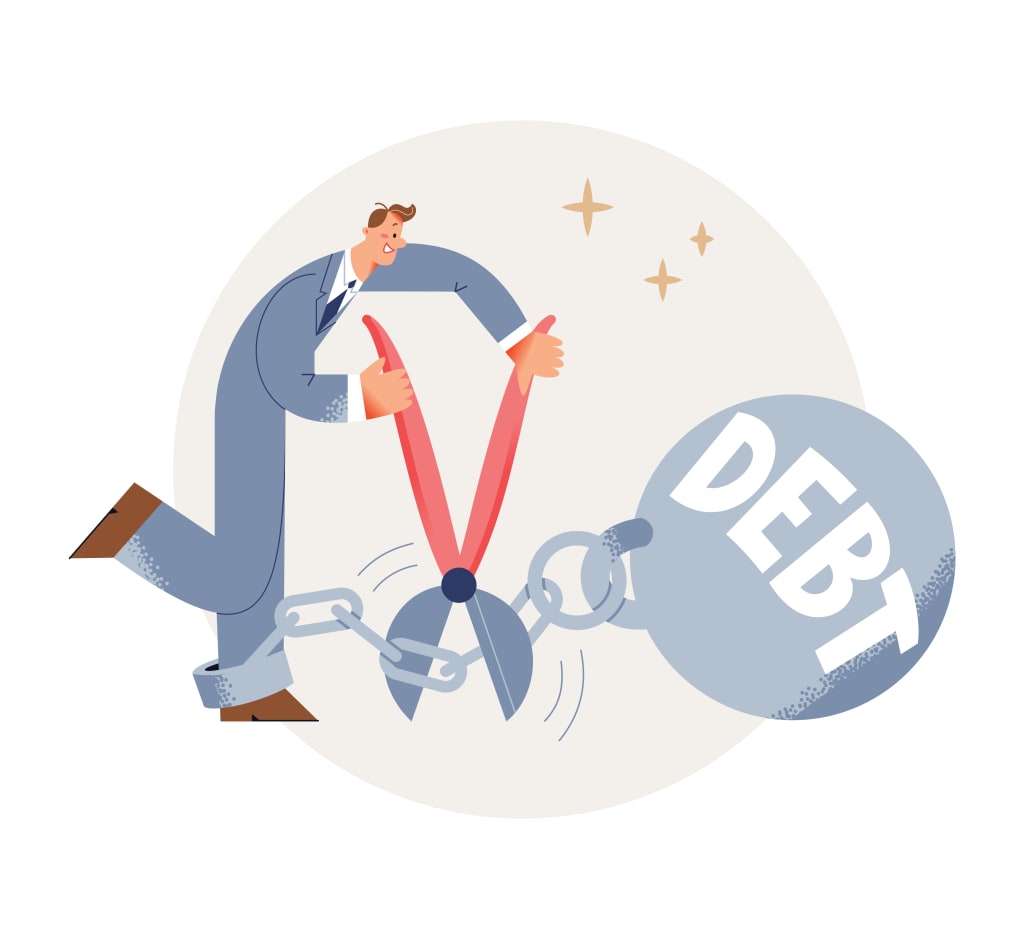Managing Debt: Tips for Paying off Credit Card and Student Loan Debt
Taking Control of Your Finances and Achieving Financial Freedom

Particularly when it comes to credit card and student loan debt, debt may be a substantial source of stress and concern for many people. Effective debt management is crucial to prevent exorbitant interest rates, late penalties, and damage to your credit score.
We'll go through some ideas and tactics in this article for getting out from credit card and student loan debt and becoming financially free.
Recognizing Your Debt: Accurate understanding of debt is the first step in managing it. Include all of your debts, including credit card debt, vehicle loans, student loans, and any other obligations you may have. For each obligation, note the interest rates and required minimum payments. You may develop a strategy to efficiently pay off your debt by having a clear understanding of your debt.
The Federal Reserve estimates that the average American household owes more than $6,000 on credit cards. Additionally, the average borrower in the United States owes more than $30,000 in student loan debt, which has topped $1.7 trillion. These figures emphasize how crucial it is to handle debt well.
Making a Budget: When it comes to managing debt, making a budget is crucial. Find areas where you may reduce spending by taking a look at your monthly income and costs. Pay off your debt with any excess cash you have left over. To keep track of your expenditures and stay inside your budget, think about using budgeting applications.
A budget is instructing your money where to go rather than wondering where it went, according to renowned personal finance expert Dave Ramsey. You can take charge of your finances and make sure that your money is going where it needs to go by making a budget.
More than the Minimal Payment: You'll accrue more interest over time if you merely pay the minimum balance on your credit cards or student loans. To lower your amount and reduce interest costs, try to pay more than the required minimum each month. Prioritize paying off debt with a high-interest rate, such as credit card debt, before taking on debt with a reduced interest rate.
Just 39% of credit cardholders, according to a CreditCards.com poll, pay down their bill in full each month. This indicates that most people are paying interest on their credit card debt, which quickly adds up. You can lower your amount and save money on interest by paying more than the minimum each month.
Consider Debt Consolidation: Consolidating debt might help you handle a number of debts. This is merging all of your loans into a single, lower-interest loan to make managing and repaying your debt easier. Be mindful though, that certain consolidation loans can have costs or extended payback periods, which could end up costing you more over time.
Debt consolidation is risky because, in the words of financial expert Suze Orman, "it's like treating a fever without recognizing the sickness causing it." In some situations, debt consolidation may be beneficial, but it's crucial to address the underlying problems that led to the debt in the first place.
If you're having trouble making your payments, talk to your lenders about bargaining. Several lenders are prepared to work with you to develop a repayment schedule that matches your financial situation. Some might even waive late fees or provide lower credit rates. Never hesitate to seek assistance.
Finally, debt management is a critical component of personal finance. Whether you have debt from credit cards or student loans, it's critical to take charge of your money and make a strategy to pay it off. Using the above-mentioned advice, you can start moving in the direction of a future free of debt.
Keep in mind Warren Buffett's adage, "Never lose money is the first rule. Rule No. 2: Recall Rule No. 1 at all times."
You may avoid taking on extra debt by keeping an eye on your expenditures and making a budget.
Debt repayment can be a protracted and difficult process, but it is worthwhile. You can relieve yourself of the anxiety and tension that come with financial instability by taking control of your debt. You'll be on your way to a future without debt if you keep these suggestions in mind and don't lose motivation.
About the Creator
Soulful Living
Welcome to "Soulful Living"! Our blog is all about exploring ways to live a more fulfilling life by nurturing the soul. From mindfulness practices to self-care tips that can help you connect with your innermost self. Let's live soulfully!






Comments
There are no comments for this story
Be the first to respond and start the conversation.